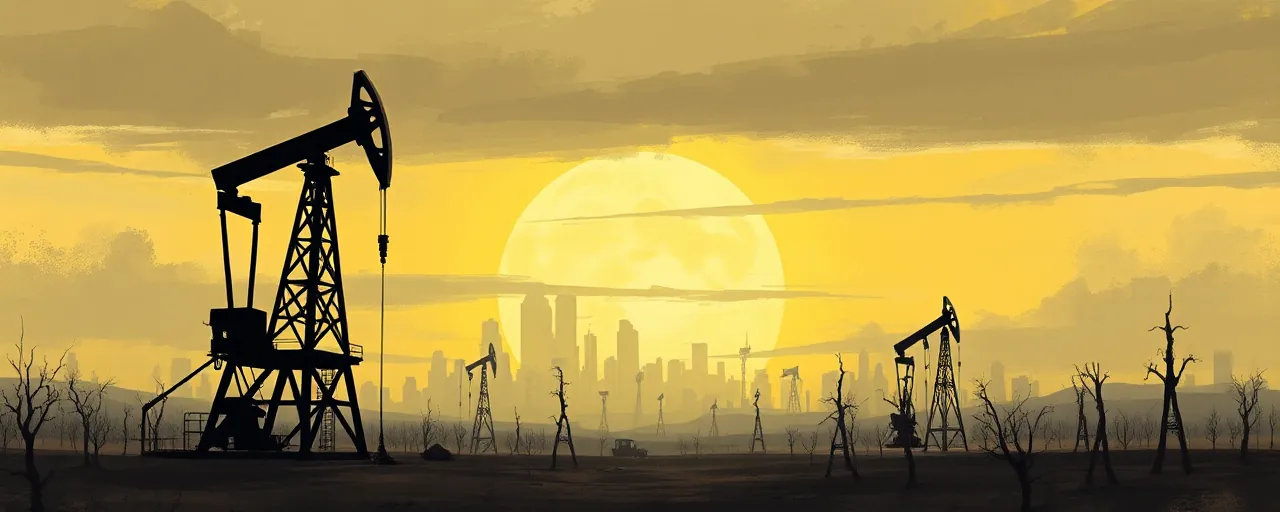A Reckless Rollback
On April 8, 2025, President Donald J. Trump signed an executive order that hit like a freight train, barreling through years of painstaking state-level efforts to combat climate change. With a stroke of his pen, he directed the Attorney General to dismantle what he calls 'unlawful' state energy policies, framing them as obstacles to America’s so-called energy dominance. For millions of families already stretched thin by rising costs and unpredictable weather, this isn’t a victory lap; it’s a gut punch to a future that’s already teetering on the edge.
This isn’t just policy wonkery; it’s personal. State laws in places like New York and California, designed to hold fossil fuel giants accountable and push for cleaner energy, are now in the crosshairs. Trump’s order zeroes in on initiatives tackling greenhouse gas emissions and corporate transparency, branding them as ideological overreach. But what he’s really doing is handing a blank check to oil, gas, and coal barons while the rest of us choke on the fumes and foot the bill.
The stakes couldn’t be higher. With wildfires ravaging the West, floods drowning the South, and heatwaves baking the Midwest, state-led climate action has been a lifeline, a fragile thread of hope. Trump’s move doesn’t just unravel that thread; it sets it ablaze, all in the name of an outdated vision of prosperity that ignores the screams of a warming planet.
The Cost of Fossil Fuel Nostalgia
Trump’s argument hinges on a seductive promise: cheap, reliable energy for all. He paints state regulations as elitist shackles, driving up prices and strangling industries. Sure, affordable energy matters; no one disputes that heating homes or fueling factories keeps America humming. But this rosy picture conveniently sidesteps the wreckage left by fossil fuel reliance, from polluted air to spiraling electricity bills when supply chains falter.
Take California’s carbon caps or New York’s Climate Superfund Law, which seeks $75 billion from energy companies to fund climate resilience. Trump’s team calls these punitive, but they’re lifelines for communities battered by storms and heat. Research backs this up; states embracing renewable energy mandates have seen job growth in solar and wind outpace fossil fuel sectors, per the Inflation Reduction Act’s ripple effects. Meanwhile, coal’s revival, reclassified as a 'mineral' under Trump’s watch, drags us backward, locking families into volatile prices tied to geopolitics, like the Russia-Ukraine mess that jacked up oil costs.
The administration claims state policies disrupt national energy security. Yet, the real threat isn’t California’s emissions rules; it’s a federal obsession with digging up the past while the world races toward renewables. Utah’s balanced approach, blending economic growth with environmental care, proves states can innovate without federal meddling. Trump’s order doesn’t protect us; it leaves us vulnerable to a market that’s already shifting under our feet.
And let’s not kid ourselves about jobs. The coal mines and oil rigs Trump champions employ fewer people every year, while clean energy creates millions of positions, from turbine techs to grid engineers. His energy dominance mantra sounds tough, but it’s a hollow echo of a bygone era, leaving workers and families stranded as global demand pivots green.
Opponents might argue this rollback frees businesses from red tape, boosting the economy. Fine, deregulation can spark growth, but at what cost? When energy prices spike because we’ve ignored renewables, or when taxpayers fund disaster recovery instead of prevention, that’s not savings; it’s theft from the future. The Supreme Court’s 2022 West Virginia v. EPA ruling already clipped federal climate wings; now Trump’s torching state efforts too, betting on a fossil fuel mirage while the planet burns.
A Future Stolen From the States
This isn’t just about energy; it’s about power. Trump’s order tramples the very federalism he claims to defend, stomping on states’ rights to protect their people. California’s vehicle emissions standards, New York’s retroactive liability laws, Vermont’s climate funds; these aren’t rogue experiments; they’re democratic responses to a crisis Washington keeps dodging. The Federal Power Act of 1935 carved out room for states to shape their energy fates, and they’ve done so, often brilliantly.
Yet, Trump’s vision demands conformity, a one-size-fits-all fossil fuel fetish that punishes innovation. His past orders overriding California’s wildfire prevention or threatening sanctuary cities with funding cuts reveal the pattern: states daring to lead get slapped down. The hypocrisy stings; he touts local control until it clashes with his agenda, then it’s federal hammer time.
History shows states as laboratories of progress. California’s renewable push slashed emissions while growing its economy; New York’s disclosure laws forced corporate accountability. Trump’s order doesn’t just halt this; it sends a chilling message: adapt to climate reality, and we’ll break you. With the Supreme Court greenlighting state lawsuits against energy giants, the tide was turning toward justice. Now, that momentum’s at risk.
The Fight We Can’t Afford to Lose
We’re at a breaking point. Energy price shocks, from Middle East chaos to domestic grid failures, hit hardest those least able to cope: working families, small businesses, the elderly. Trump’s order doubles down on a system that’s already failing them, chasing short-term wins while the long game; a stable, clean energy future; slips away. State policies weren’t perfect, but they were steps toward something better, something survivable.
This isn’t abstract. It’s kids breathing dirtier air, parents rationing heat, towns rebuilding after floods with no help in sight. We need leaders who see that, who fight for a planet we can still hand down. Trump’s energy gambit isn’t dominance; it’s surrender to a dying industry, a betrayal of every American dreaming of a life not dictated by the next disaster. We deserve better, and we’ve got to demand it, now.
